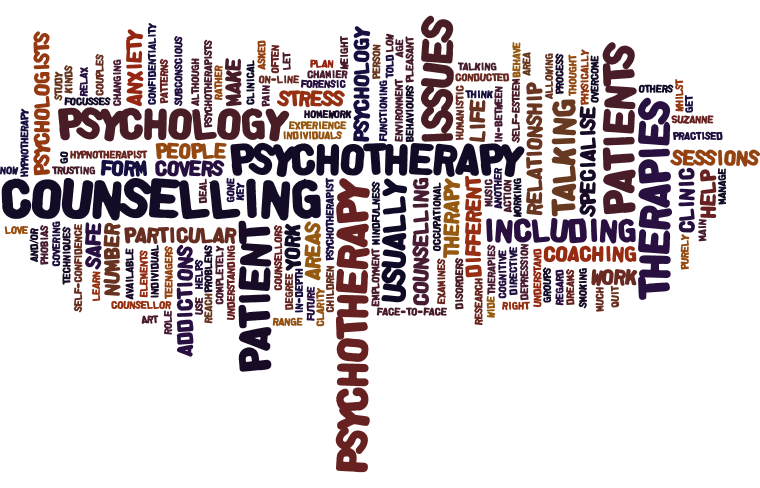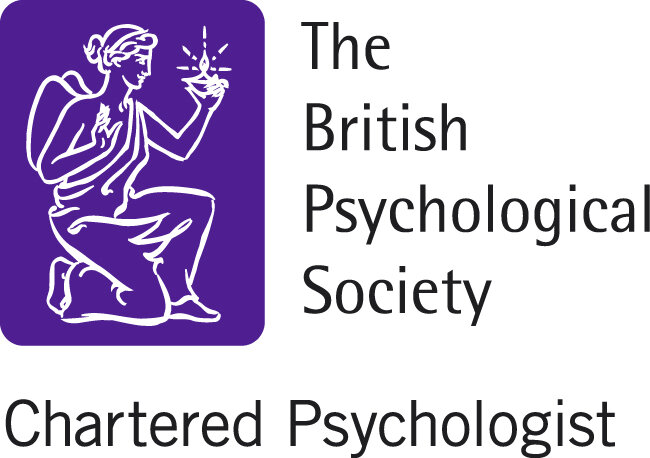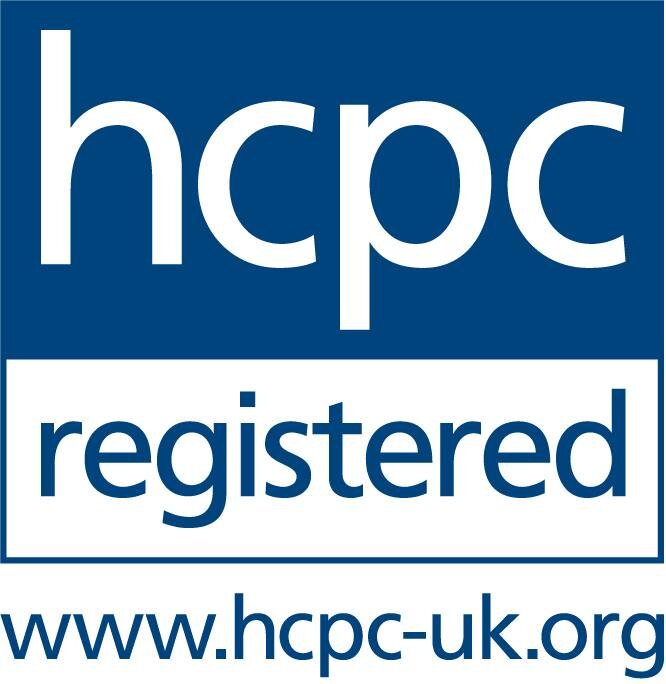What is the difference between counselling, psychotherapy, psychiatry and clinical psychology? Which mental health professional should you see?
If you are thinking about accessing professional support it is important to know the differences between various profession groups and which one is more likely to be of help to you. This article clearly defines professional roles and distinguishes between specific models and qualifications. Please note, this article excludes roles of mental health nurses, occupational therapists and social workers who often take on an active role in supporting people in secondary care mental health services and therefore less likely to be of help to individuals seeking private talking therapy.
Community-based mental health treatment, in more general terms, can be divided into two main categories: pharmacological therapy and talking therapy. The former is provided by psychiatrists, whereas the latter is a much wider domain provided by all remaining professionals: counsellors, psychotherapists and clinical psychologists.
Pharmacological treatment
Pharmacological treatment involves prescribing psychoactive drugs usually by a psychiatrist but in some common mental health problems such as depression and anxiety, also by your local GP. These drugs can help with symptoms of mental illness or disorders, for example bipolar, psychosis, depression, anxiety or PTSD.
These drugs usually reduce the intensity of various upsetting symptoms such as low mood, suicidal tendencies, sleep problems or anxiety. It is important to know that the pharmacological treatment does not ‘magically take away the illness’ but in many cases can provide a temporary relief from some upsetting symptoms. Taking medication combined with an understanding of the psychological root cause of your mental distress through talking therapy can be an effective combination.
In some cases the drugs can be essential in the recovery. This is more likely to be the case in severe presentations during the initial phase of treatment where medication can give an essential boost of motivation and increase your ability to engage in talking therapy. A major drawback of this form of treatment are certain side effects which can prove to be difficult to tolerate for some people. A psychiatrist will be able to talk you through the options and consider the pros and cons of starting you on the most suitable drug.
Another issue which often comes up is overprescribing medication to treat low to moderate symptoms of depression or anxiety without first offering talking therapy as a less invasive form of treatment. This is a substantial problem in the UK and in many developed countries where mental illness in predominantly seen through medical model which sees mental distress as something that has to be ‘removed’ or numbed rather than understood.
Talking therapies
Talking therapy involves a process that evolves over a number of sessions between you and a mental health professional, with a clear focus on helping you understand yourself better and manage and eventually resolve your difficulties. In other words, talking therapy is a process of discovering something important about yourself that is distressing and difficult to tolerate and hence might be hiding behind your symptoms, emotional reactions or behaviours.
It might be unclear at the beginning which type of mental health professional you should see and the truth is that there are no clear boundaries that distinguish various professional groups in terms of the type of talking therapies they provide. However, there are clear differences between the professions with regards to their training and how their membership is regulated.
One important thing to remember is that various professional groups have different regulating bodies and have to meet different standards in order to complete their training requirements.
What is a protected title?
Protected title such as the title of a clinical psychologist is protected by law which means that anyone who uses the title has to be registered with Health and Care Professions Council. HCPC sets and regulates the ethical and professional standards in order to monitor and ensure safe practice and a consistent level of training amongst those using the titles. You can check the status of a particular clinical psychologist here.
At the moment, the titles of ‘counsellor’, ‘psychotherapist’ or ‘psychologist’ are not protected by law, meaning that there are no legal restrictions and regulations in terms of the standards of training or qualifications. This is more likely to be a concern if you are looking for private talking therapist since it is not always clear whether a person offering therapy has sufficient training to address the issues you are seeking help for.
It is therefore advisable to check their professional registration with their accrediting bodies. This should be stated clearly on their website including their registration number. The two main regulating bodies for counsellors and psychotherapists are The British Association for Counsellors and Psychotherapists (BACP), The UK Council for Psychotherapy (UKCP).
Counsellor, Psychotherapist or Clinical Psychologist?
Before you make your choice you might want to know about some general differences and similarities between the three professional groups. All the above groups encompass a wide range of professionals who might be trained differently and use a wide range of therapeutic models and techniques. All of them provide psychological therapy but their training paths are not the same.
Counsellors generally speaking apply person-centred approach which puts your experiences in the centre of their work. This is a less challenging and more supportive form of therapy which is often helpful for the majority of day-to-day struggles or some particular challenging events in life such as bereavements, other losses, and sudden life events which you might need some help to process. The average counsellor will have 3 years of basic training and can draw upon various therapeutic models. Some counsellors can also work with couples and young people but they would normally have additional training. If your issues are more complex sometimes seeing a counsellor might not be sufficient to help, although some more experienced counsellors who specialise in particular area of mental health might be suitable, for example if they trained further in a specific therapeutic model. Counsellors usually see people once weekly and the cost of counselling in London is somewhere between £40-£80 per session.
Psychotherapists are trained in a specific model of psychotherapy and have specific way of working and they tend to be experts in that model of delivering therapy. Psychotherapists are usually trained to work with people longer-term and are experienced in dealing with complex mental health problems. Psychotherapy training usually lasts 4 years and many of them also have undergraduate degree in psychology or other disciplines. Psychotherapists tend to specialise in working with individuals - adults or children, couples, group of families. In order to do that they have to complete specialist training in that field. You should therefore look for a therapist who specialise in a particular client group and a model of therapy that you are interested in. Psychotherapists have to complete their own therapy as part of their training as it is seen by many therapeutic schools as an integral part of their professional development. The ability to commit to working on their own internal issues in order to become more aware of their own ‘blind spots’. Psychotherapists can see people once a week or more frequently:1-5 times weekly, in case of psychoanalytic psychotherapy or full psychoanalysis. The cost of once weekly therapy in London is usually somewhere between £50- £120, depending on the location and expertise.
Clinical psychologists are specifically trained to work with complex presentations in the NHS as well as conduct psychological research and take on leadership roles in organisations. Clinical psychology training involve undergraduate degree in psychology, masters degree in psychology and usually several years of clinical work before they apply for doctoral training in clinical psychology which lasts 3 years and involves reachers, academic teaching and clinical placements. Clinical psychologists are usually trained in at least 3 models of therapy and gained experience working with working age adults, children, people with learning disabilities, and older adults. However, they tend to specialise after their training in working with a specific client group. Many clinical psychologists often undertake additional psychotherapy training after qualifying. This means that many clinical psychologists end up training as psychotherapists. Clinical psychologists tends to offer both short-term and long-term therapy and have worked in the NHS for a number of years before beginning to offer private therapy. Sadly, personal psychotherapy is not a required element of the doctoral training in the UK but it is strongly encouraged by many training universities. Despite this, some clinical psychologists have years of psychotherapy which is an essential part of becoming an ethical and effective therapist. Having been trained in a variety of psychotherapy models gives clinical psychologists an advantage of providing more flexible approach and adapting their way of working to suit the needs of a large variety of individuals. In terms of costs, clinical psychologists tend to charge the most of private therapy and it can be on average between £90- £180 per session.
Overall, therapy is not so much about the technique that is being used as it is about the therapeutic relationship that build up over a period of time between you and your therapist. It is therefore essential to think beyond titles and qualifications and think about the experience in the room. Therapy can be an extremely rewarding and transformative experience however, it is also hard work and requires commitment of time and motivation to understand yourself. Therapy is an active process and at times brings up pain and discomfort. It also frees up mental space and allows for more fulfilling and rewarding life.












